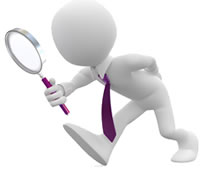In a book I’m reading at the moment – Border Country by Raymond Williams – one of the characters calls his grandfather ‘Gran‘, which strikes me as unusally. To me gran could only refer to a grandmother. Does it seem strange to you?
I only remember one of my grandparents – my dad’s mum – who I think we called granny. We used the same term for my mum’s stepmother, who was with us until 2013.
Some people I know have different names for their grandmothers. For example, their mum’s mum might be nan, and their dad’s mum might be gran or granny. I haven’t noticed people having different names for their grandfathers in English.
In Welsh though, people sometimes add the name of the place where they live to the words for grandfather and grandmother. For example, Taid Dinbych (Denbigh Granddad) and Nain Caergybi (Holyhead Granny), or in South Wales Tad-cu Casnewydd (Newport Granddad) and Mam-gu Caerdydd (Cardiff Granny).
What do you call, or did you call, your grandparents?

